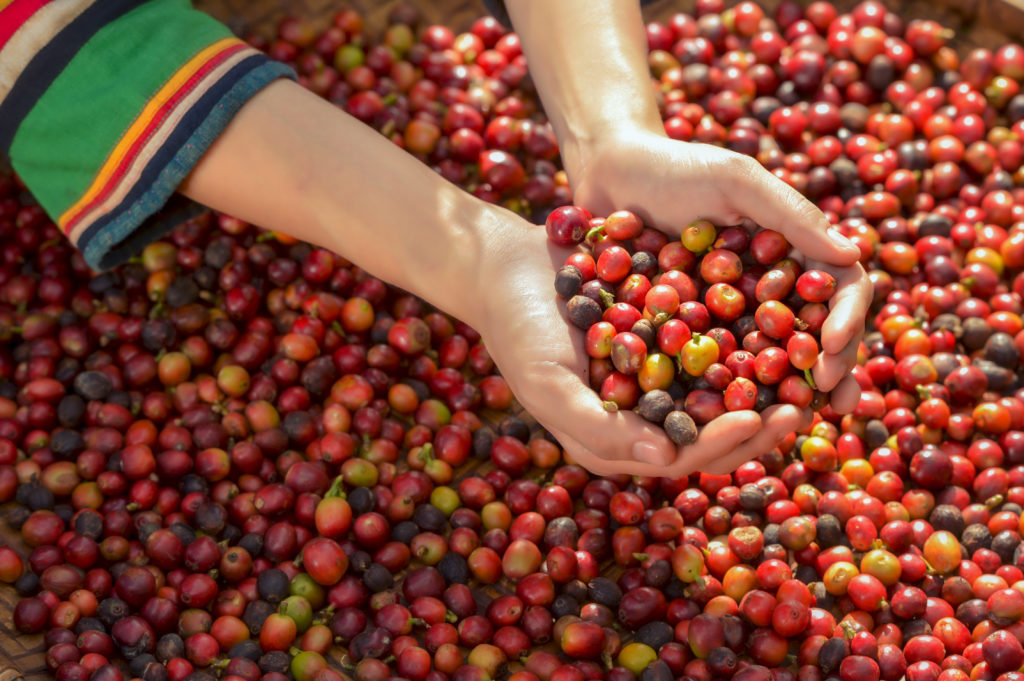
The coffee culture around Thailand has grown exponentially over the years with coffee shops popping up throughout the country. Although Starbucks, Amazon Café, and Black Canyon are among some of the larger chains meticulously scattered in malls and gas stations along every major road in Thailand, the country’s smaller shops are making waves in the coffee scene. It is obvious that Thais are no stranger to this liquid gold, but what is it that makes Thais so crazy for coffee and why is northern Thailand so ideal for its production?
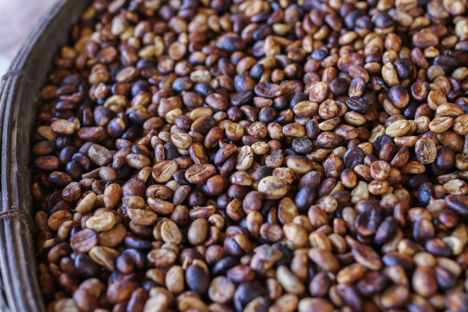
Honey-Processed Arabica Coffee Beans from Baan Dong Village in Mae La Noi
There are two types of coffee grown in Thailand – Arabica and Robusta. Arabica coffee which is grown in northern Thailand supports rural communities, contributes to forest preservation, and are one of the many sustainable initiatives shining a light on the industry itself. Provinces like Chiang Mai, Chiang Rai, and Mae Hong Son have cooler dynamic climates that lend themselves to be thriving locations for coffee growing. Robusta coffee is grown in southern Thailand but offers a lower yield while taking a larger toll on the farmland the beans are grown on.
Thailand’s coffee market is relatively young compared to other international producers but that also attributes to the various methods of processing coffee, such as honey processing by local farmers. One local village which you may have become familiar with if you watched The Local Traveler in Thailand documentary (now streaming on Amazon Prime and iTunes) and specializes in honey-processed coffee, is Baan Dong Village in Mae La Noi. The village is home to Nee, Rose, and Sook (Rodjana Phetlamkha, Rachanee Phetlamkha, Panuwat Phetlamkha) – siblings and the village’s young coffee entrepreneurs.
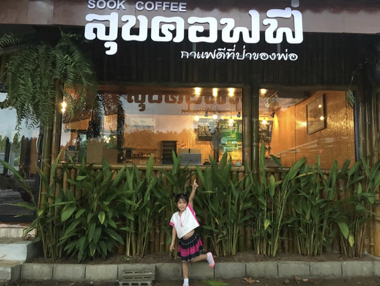
During the filming of the Local Traveler in Thailand earlier this year, sisters Nee and Rose voiced their plans to return back to their home in Mae La Noi to open their own coffee shop in conjunction to turning their farm, which is nestled deep in the mountains of Baan Dong Village, into a farm-stay where visitors can come and partake in coffee and farming production. While the farm accommodations should be completed later this year, Sook Coffee opened this past August and is promoting itself as a plastic-free establishment.
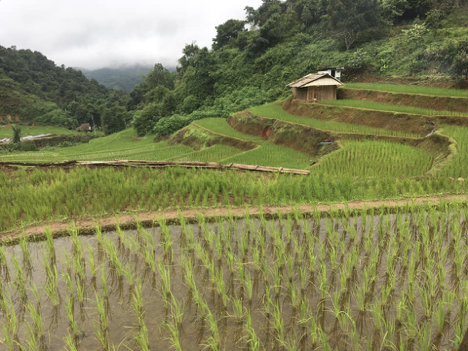
Located off the main road that runs through the district, Sook Coffee Caffeine Station serves up a variety of creations that originate from the arabica coffee strain that was given to their community by King Rama IX decades ago. During His Majesty’s visit to the community, the King saw that a large portion of the village was used to grow opium and asked for the villagers to make space for coffee and other crops like passion fruit and cabbages.
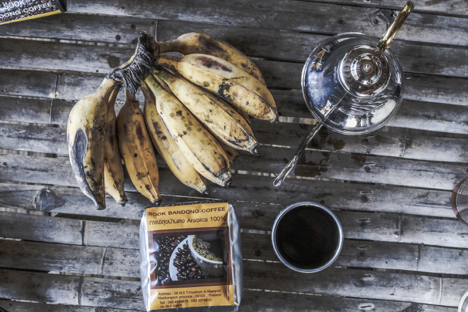
What is special about Sook Coffee?
The coffee is grown by the entire community of Baan Dong. The fragrant and fruity coffee beans are hand-turned hourly as they dry in the sun. Nee, Sook, and Rose’s parents can be found on the farm methodically turning each bean. The way the coffee is grown does not affect the natural forests it grows in. The coffee plants are small and grow beneath larger trees. The three siblings behind Sook Coffee – market the coffee for the village to try to minimize third parties and thus maximizing on sales. Each bean is grown with the pride and love of the Bang Dong People and is felt with every sip of coffee they make.
Sook Coffee beans have yet to be exported out of Thailand, but if you are visiting Thailand, you can order and get a package sent to you. Or better yet, if you are passing through Mae La Noi during your adventures in Mae Hong Son, be sure to stop in at Sook Coffee for a cup or two of their honey-processed coffee made with endless drops of love.





